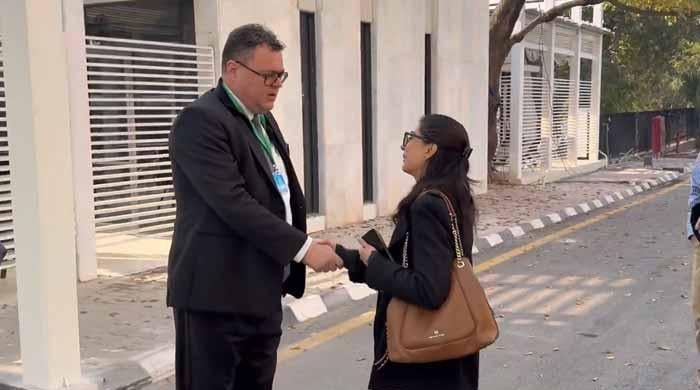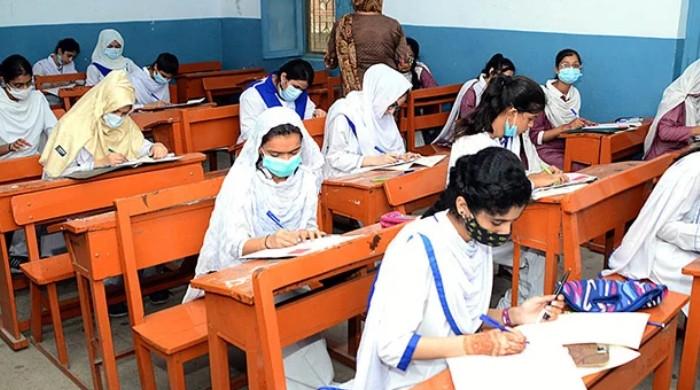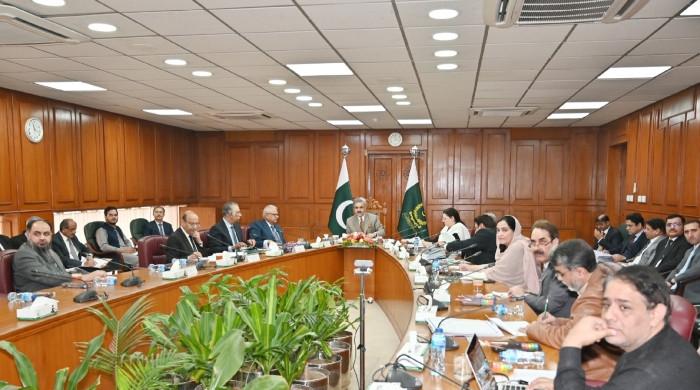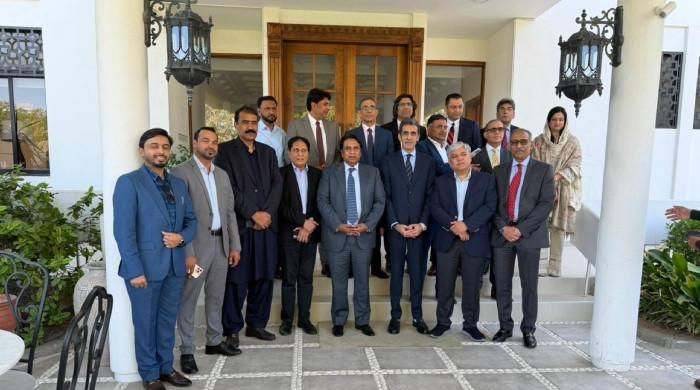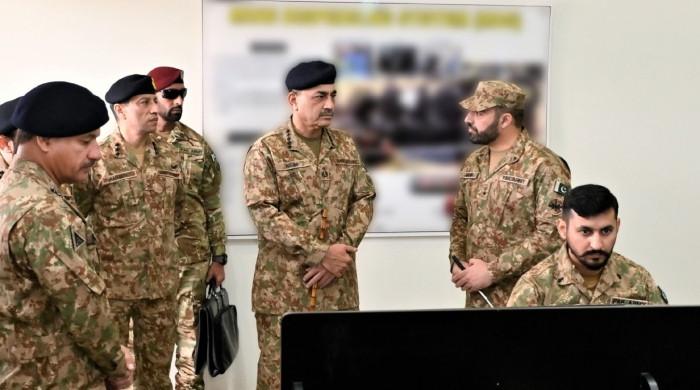In address to UN, PM Imran Khan appeals for urgent economic support for developing nations amid pandemic
Debt suspension, drawing rights of $500 billion and return of stolen assets stashed in rich countries top premier's 10-point agenda
December 04, 2020
ISLAMABAD: Prime Minister Imran Khan proposed on Friday a 10-point agenda on how to avoid economic collapse in developing countries amidst the COVID-19 pandemic. He was virtually addressing a two-day special session of the UN General Assembly.
The idea of the session, which opened on Thursday, was to develop a united response to recovery from the deadly coronavirus pandemic. It will be addressed by 141 speakers, including 53 heads of state, 39 heads of government, four deputy prime ministers and 38 ministers through pre-recorded videos.
Debt suspension, drawing rights of $500 billion and return of stolen assets stashed in rich countries topped some of the suggestions on Prime Minister Imran Khan's list.
Read more: More than a third of Pakistanis term PM Imran Khan's performance 'unsatisfactory': survey
His recorded video message to the summit from Islamabad detailed his plan, which included emergency financial support to developing countries. He said the pandemic had caused immense human suffering and created the deepest global economic contraction since the great depression of the 1930s.
Nearly 100 million people in developing countries will fall back into extreme poverty while rich countries inject $13 trillion as fiscal stimulus to revive their economies, PM Imran highlighted.
Read more: Punjab bans indoor dining in restaurants, eateries amid worsening coronavirus situation
“Developing countries just do not have the resources to afford such a massive economic stimulus […] They are struggling to find even a fraction of the $2-3 trillion they require to recover from the pandemic,” he said, asking the international community to identify and implement some key priority actions to avoid an economic crisis.
What is PM Imran's 10-point agenda?
- Debt suspension for low income and most stressed countries till the pandemic ends.
- Cancellation of debt for developed countries.
- Restructuring of the public sector debt of other developing countries under an agreed inclusive multilateral framework.
- A general allocation of special drawing rights of $500 billion.
- Expanded concessional financing to lower income countries through multilateral development banks.
- Creation of a new ‘liquidity and sustainability facility’ to provide short term loans at lower costs.
- Fulfilment of the 0.7% official development assistance commitments.
- Mobilising the required $1.5 trillion annual investment in sustainable infrastructure.
- Achievement of the agreed target of mobilising $100 billion per year for climate action in developing countries.
- Immediate action to stop the massive illicit financial outflows from developing countries to rich countries, to offshore tax havens and at the same time, immediate return of their assets stolen by corrupt politicians and criminals back to these countries.
‘Most serious global crisis since World War II’
The PM called the coronavirus pandemic the most serious global crisis since the second world war.
He assured the UNGA president that his 10-point solution will benefit poor countries more than all other measures put together.
The virus has infected nearly 65 million people so far and killed close to 1.5 million and the poorest countries and the poor are suffering the most, he said, expressing the hope that whenever a vaccine is available, it would be offered to everyone.
How Pakistan dealt with the COVID-19 pandemic
PM Khan called Pakistan’s policy of smart lockdowns “successful” and spoke about the measures the country had taken to prevent the spread of the virus.
“We provided a relief package of around $8 billion – which was almost 3% of our DGP – to support the poor and to keep the economy afloat at the same time,” he said.
He said his government’s strategies have worked so far, but that the country is now confronted with a far more aggressive second wave of the virus.
“We are facing now the challenge of maintaining and reviving our economic growth as well as dealing with increasing number of cases which are occupying our hospital beds,” he said.
The Prime Minister referred to the advice made by Managing Director International Monetary Fund (IMF) to the countries to spend as much as it was required, to stimulate growth, and said that like many developing countries, Pakistan is committed under their IMF programme to reduce the budget deficit.





